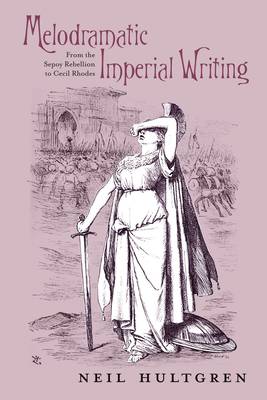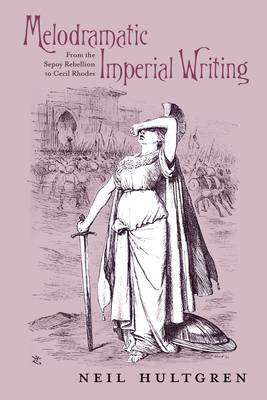
- Afhalen na 1 uur in een winkel met voorraad
- Gratis thuislevering in België vanaf € 30
- Ruim aanbod met 7 miljoen producten
- Afhalen na 1 uur in een winkel met voorraad
- Gratis thuislevering in België vanaf € 30
- Ruim aanbod met 7 miljoen producten
Melodramatic Imperial Writing
From the Sepoy Rebellion to Cecil Rhodes
Neil Emory Hultgren, Neil HultgrenOmschrijving
Melodrama is often seen as a blunt aesthetic tool tainted by its reliance on improbable situations, moral binaries, and overwhelming emotion, features that made it a likely ingredient of British imperial propaganda during the late nineteenth century. Yet, through its impact on many late-Victorian genres outside of the theater, melodrama developed a complicated relationship with British imperial discourse.
Melodramatic Imperial Writing positions melodrama as a vital aspect of works that underscored the contradictions and injustices of British imperialism. Beyond proving useful for authors constructing imperialist fantasies or supporting unjust policies, the melodramatic mode enabled writers to upset narratives of British imperial destiny and racial superiority.
Neil Hultgren explores a range of texts, from Dickens's writing about the 1857 Sepoy Rebellion to W. E. Henley's imperialist poetry and Olive Schreiner's experimental fiction, in order to trace a new and complex history of British imperialism and the melodramatic mode in late-Victorian writing.
Specificaties
Betrokkenen
- Auteur(s):
- Uitgeverij:
Inhoud
- Aantal bladzijden:
- 256
- Taal:
- Engels
- Reeks:
Eigenschappen
- Productcode (EAN):
- 9780821420850
- Verschijningsdatum:
- 1/03/2014
- Uitvoering:
- Hardcover
- Formaat:
- Genaaid
- Afmetingen:
- 155 mm x 229 mm
- Gewicht:
- 544 g

Alleen bij Standaard Boekhandel
Beoordelingen
We publiceren alleen reviews die voldoen aan de voorwaarden voor reviews. Bekijk onze voorwaarden voor reviews.











